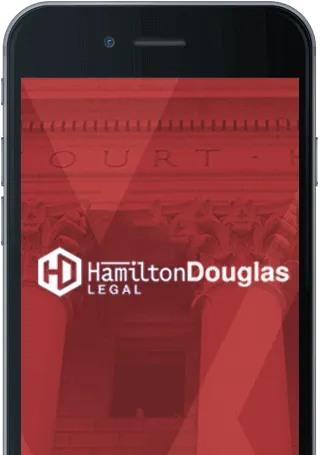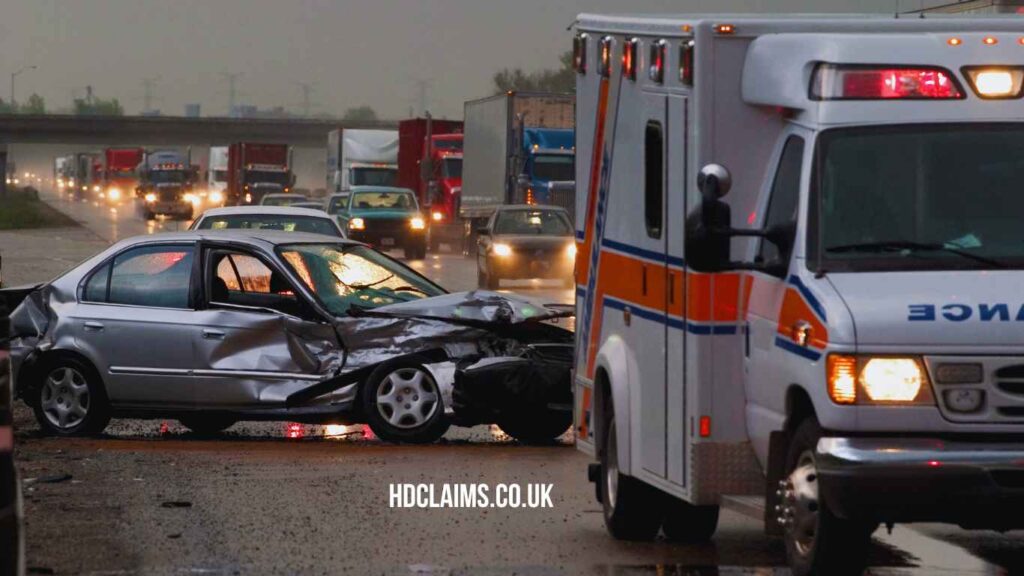
Sarah John's
Legal Writer
If you were the one who caused the accident or were mostly to blame, you might ask can I claim personal injury if the accident was my fault UK? In most cases, it’s unlikely you’ll be able to claim compensation. For a claim to be successful, you need to prove that someone else’s negligence or mistake led to the accident.
However, if you were only partly at fault, you could still make a claim. This is called split liability or contributory negligence and is a fault claim where blame is shared. It means you and someone else or a company share the blame for the accident. In this case, your compensation will be reduced by the amount of blame you carry.
Always seek legal advice to see if you can still claim, even if you were partly to blame.
Table of Contents

Get In Touch With Your Local Office:
With local knowledge and a national network of experts, we have the experience you can count on.
Understanding Split Liability in Personal Injury Claims
When both parties in an accident are found to be at fault, the case can be settled using something called split liability. This means that each person is compensated based on how much blame they hold for the accident.
For example, if you’re in a car accident and you’re 40% to blame and the other driver is 60% to blame, you can still claim from the other driver. But your claim will be reduced by the amount of blame you have. So if your fault liability claim has the value of £10,000 and you’re 40% to blame, your payout will be £6,000.
The amount of blame each party has is not always clear and can be hard to work out. It’s important to get legal advice to understand your situation and not take on more responsibility than you should. A lawyer can help you through the process and make sure you get what you’re owed.
Who Determines the Level of Fault in a Split Liability Case?
In a split liability case, your solicitor is crucial in evaluating the degree of fault. They will negotiate with the opposing party’s insurance company to determine how much blame each side bears. If both sides cannot reach an agreement, the dispute is taken to court, where a judge makes the final decision.
There are many situations where split liability will apply, such as if a driver fails to signal properly, is speeding or causes a rear-end crash. Other common examples are not wearing a seatbelt or accidents caused by alcohol or drug use.
It is critical to get legal help because determining who is most at fault might be difficult. They will analyse the evidence and make sure that you are treated fairly throughout the claim procedure. This helps ensure that the proportion of blame and compensation is correctly assigned.

Typical Road Accident Scenarios Involving Shared Blame
Here are some common road accident scenarios in which both drivers may share blame:
Emerging from a side road – If a driver pulls out unexpectedly and causes a collision, they may be partially to blame.
Turning right while being overtaken – If a driver turns right without checking their mirrors and is hit by a car passing them, both drivers may share responsibility.
Misleading signalling – If a driver gives confusing or erroneous signals, they may be partially to blame for an accident.
Rear-end crashes and sudden brakes – Sudden stops can cause rear-end collisions, but if the driver doesn’t leave enough space, both might be responsible.
Excessive speed – Driving excessively fast can be dangerous, particularly in locations where it is difficult to respond in time, leading to a shared fault.
Not wearing a seatbelt – If a person’s injury is exacerbated by not wearing a seatbelt, it might influence how blame is shared.
Collisions on small roads – On narrow streets, both drivers are more likely to make mistakes that result in a collision.
Intoxication – If one driver is intoxicated and the other driver is likewise irresponsible, both can be held partially responsible.
When Will Compensation Be Awarded in Fault or Partial-Fault Claims?
Compensation is paid when you are injured as a result of someone else’s actions. If you are partially at fault, your compensation may be reduced, but you can still seek compensation from the other person or their insurance company based on the degree of fault assigned to each party.
DEDICATED CLAIMS ADVISORS
Our dedicated claims advisors are always available to offer free legal advice.
100% NO WIN NO FEE CLAIMS
All our claims are processed on a No Win No Fee basis; you pay nothing if you lose.

MILLIONS SECURED IN DAMAGES
To date, we have secured millions in damages.
THOUSANDS OF SATISFIED CLIENTS
To date, we have helped thousands of clients recover compensation and continue to do so.
What Is Considered a Non-Fault Accident?
A non-fault accident occurs when you are not responsible for creating the injury or damage. For example, if another driver hits your car while speeding or not paying attention, it is usually considered a non-fault collision.
However, just because you were not at fault does not guarantee you will receive compensation. To make a successful claim, you must demonstrate that someone else’s mistake or negligence caused the accident. Even if you are not to blame, it may be difficult to demonstrate that the other party was legally responsible.
This is why it is critical to speak with a solicitor. They can assist you in determining who is legally responsible and navigating the Road Traffic Accident Claims procedure. They’ll explain your rights and whether you have a solid claim for compensation. A lawyer’s advice is crucial because they will evaluate the facts and choose the best course of action.
What If You Were Responsible—Fully or Partially—for the Accident?
You cannot make a compensation claim if you are entirely at fault for an accident. This is because no one else is to blame. For example, if you lose control of your vehicle and no other vehicles are involved, there is no one to make a claim against.
However, if you are partly at fault, you may still be able to make a claim. If someone else is also at fault for the accident, you can seek compensation from their insurance, but your payout will most likely be reduced based on your share of the responsibility.

Can’t Work Due To Illness Or Injury?
Use our free online claim check tool and find out in minutes if you have a claim.
How Is Fault Determined After an Accident?
In some accidents, it’s clear who is at fault. However, fault can be complicated and isn’t always obvious. Personal injury laws are complex, and it is not always clear if you can make a claim. It’s important not to assume you have no case. Even if the situation seems straightforward, other factors could be at play.
To fully understand who is responsible and whether you’re eligible for compensation, it’s a good idea to discuss the details of your accident with a lawyer. They can help clarify things and guide you through the legal process.
Get In Touch With Our Panel of Personal Injury Solicitors In Scotland
If you have been involved in an accident and are confused about your rights or how to proceed, contact our panel of personal injury solicitors. Our panel of skilled personal injury solicitors in Scotland can assist you in understanding the legal process and navigating a claim. Whether you’re confused about who’s at fault or need advice on the next steps, they’ll be there to help.
Reach out for a free consultation and discuss the details of your case. Our panel’s No Win No Fee Solicitors in Scotland are here to help you get the compensation you deserve.
Easy Ways To Get In Touch
We are here to help. Give us a call, request a call back or use our free claim check tool to get in touch with our friendly legal team. With local knowledge and a national network of experts, we have the experience you can count on.






